The Last Days of Tekserve
Auctioning off the remaining goods from “the original Apple store”
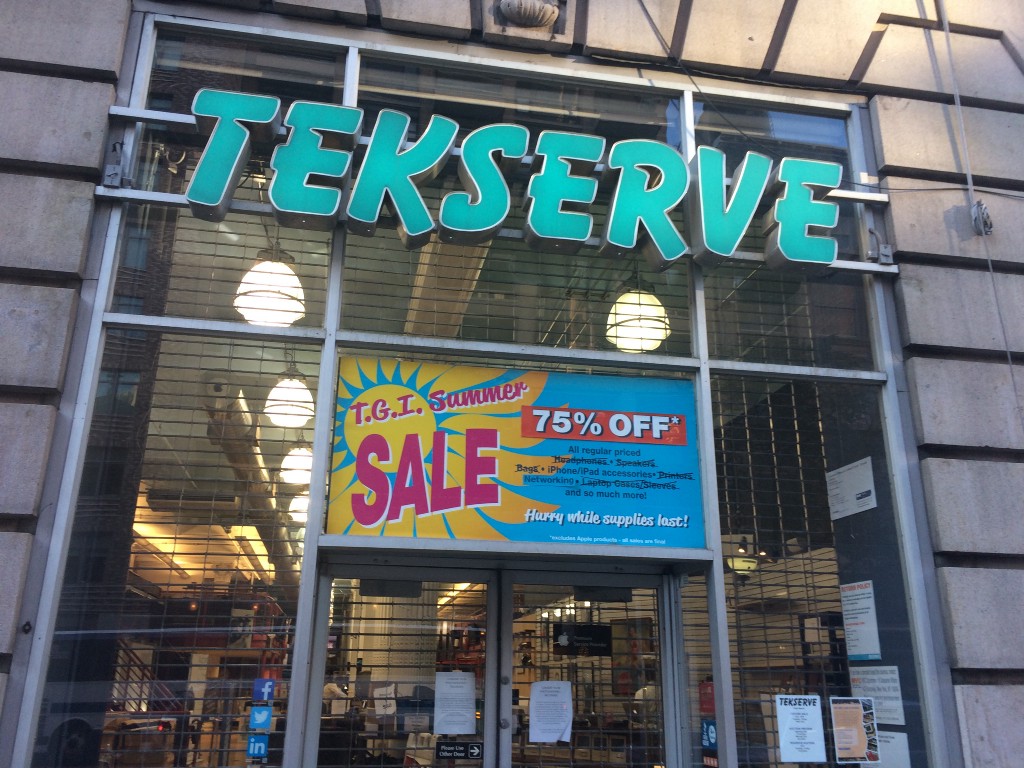
The independent technology store Tekserve was synonymous with all things Mac in New York City. But after twenty-nine years, its retail and customer service operations have gone out of business (the B2B arm will continue life as T2 Computing). It isn’t that the physical operation hasn’t made money — according to Crain’s New York Business, which included the company in its 2012 “Fast 50” list, Tekserve made nearly $100 million in 2011 alone from selling Apple products, third-party products and services. By 2016, however, there were seven Apple stores in Manhattan, the Best Buy down the street sold Apple products, and the landlord was planning to triple the rent. The store closed its doors on August 15th and held an auction one week later.
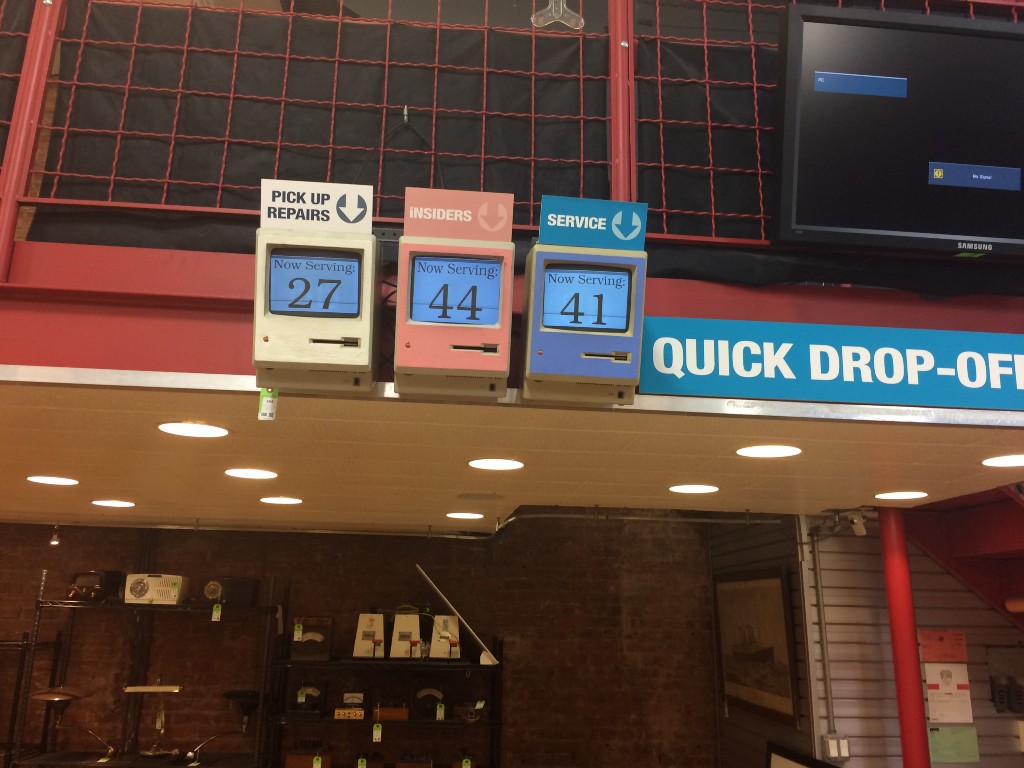
The place best known as the emergency room for busted Macs operated out of a 10,000-square-foot loft in Chelsea, its fifth location on the same side of the same block since it opened (the first was in the co-founder’s apartment). Customers were served in the order of the paper tickets pulled from old metal machines, the “now serving” numbers displayed on old Apple monitors. The place had its own gruff culture, with an impossibly world-weary staff. No matter what you asked them, you felt like a moron. It was just part of the experience. But as long as they fixed your computer that, yes, you did idiotically spill drinks on, who really cared?
Tekserve’s community farewell took the form of an auction featuring 601 items — much of which had been displayed around the store (with exceptions like a John Singer Sargent limited edition $550 print tucked away in a closet) and they were almost all from co-founder Dick Demenus’ private collection of technological and other assorted wonders. This included nearly two hundred vintage radios, a bust of Ben Franklin ($150); a “Think Different” Ansel Adams poster ($1600); a partial fossil of a starfish relative ($750); a blue, life-sized prop robot ($1500); a 1984 Mac computer, signed by Apple co-founder Steve Wozniak; and an entire thirty-five-piece vintage Mac collection that comprised the store’s “Mac Museum” and included an Apple Lisa.
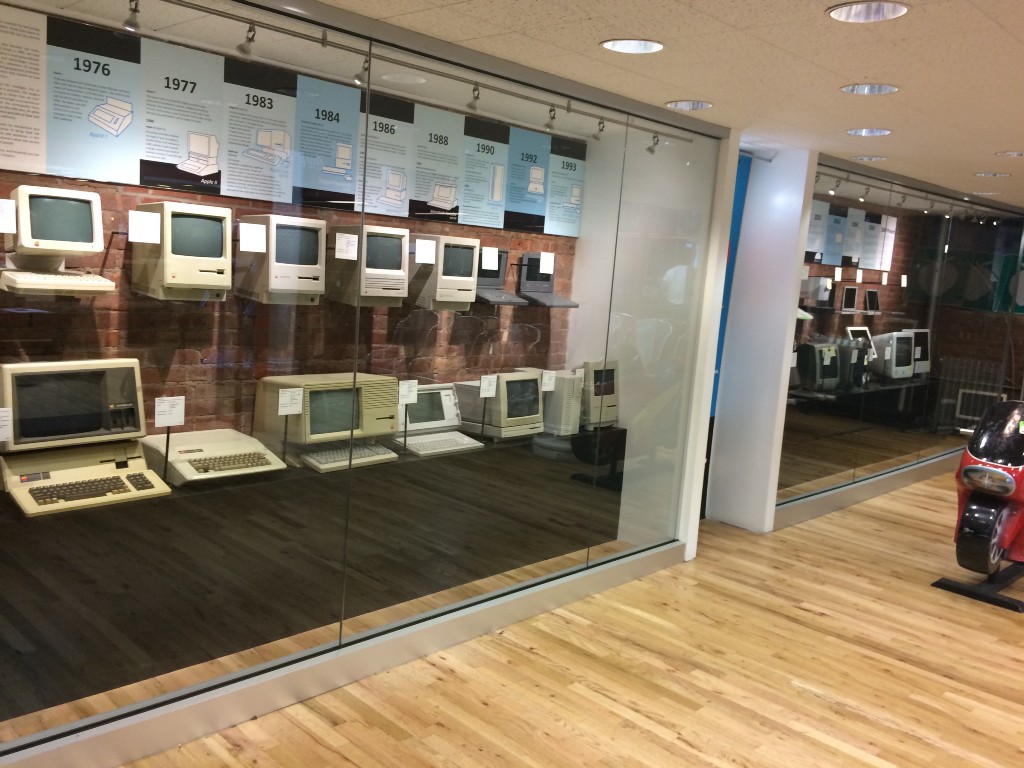
“Today’s emotional,” said sixteen-year veteran David Cook, who worked as Tekserve’s hiring manager, who took a breather to walk around the block after he became emotional. By his count, four or five different families were started by Tekserve employees. The atmosphere in the store that day was dominated by the current and former employees reconnecting. It was like a family reunion — if everyone in your family knew way too much about Apple. During individual conversations with several employees, others came up to give hugs, muse about the sadness of it all, and see what they were bidding on (radios).
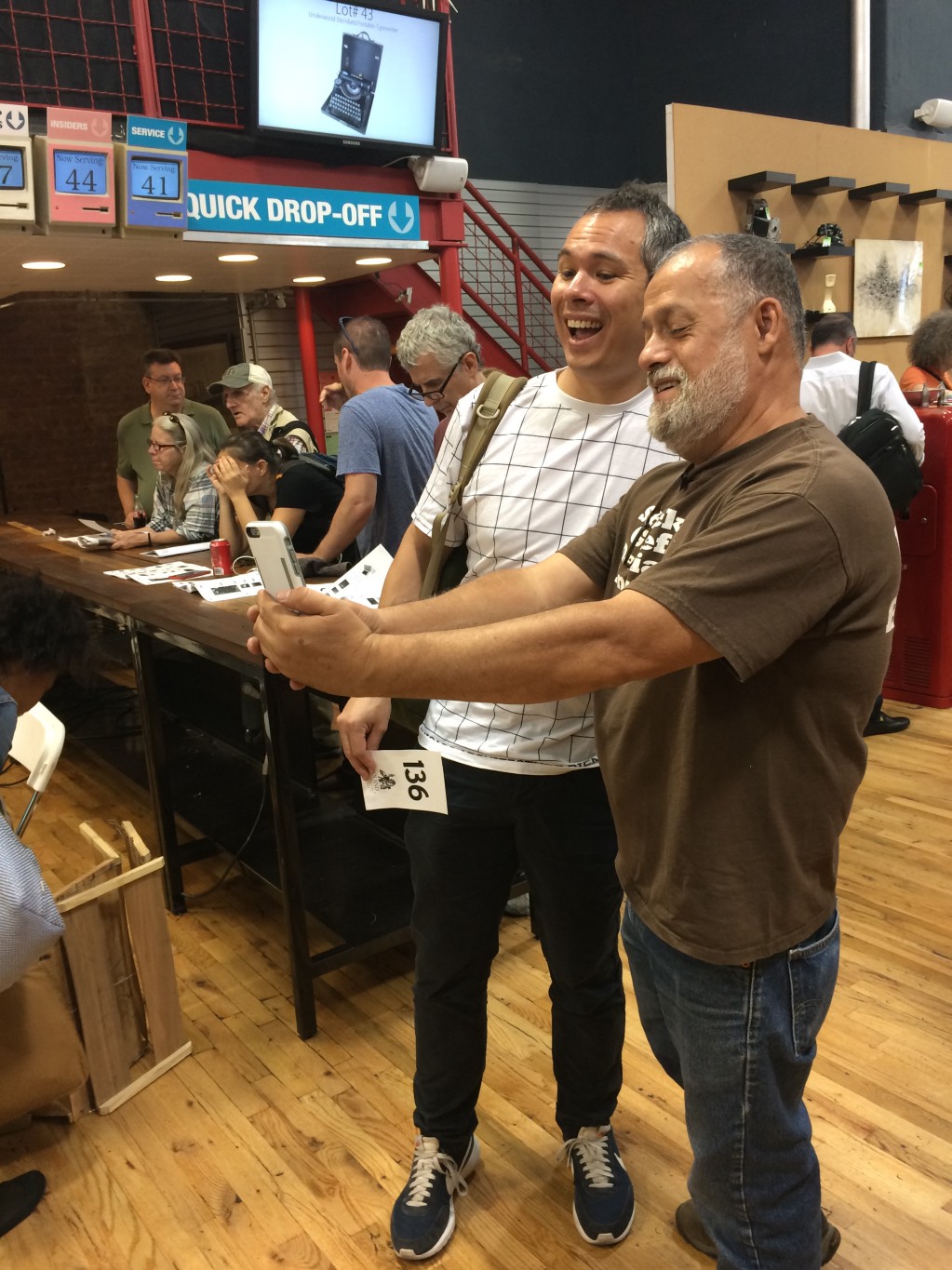
In-person auction attendees (the auction had an online component) also featured neighbors, Mac obsessives, and die-hard New Yorkers. Fifteen-year-old Zac Cohen, a Chelsea resident, bid on Lot 24, a red, three-foot-high kid’s toy motorcycle — “which works, I’m told,” remarked auctioneer Bill Roland (many items were unable to be tested before sale). Cohen had come with his father, David, who had been a customer of Tekserve since it opened. He said Zac had ridden the bike in the store as a kid, although he didn’t remember doing so. When the bidding reached $400, Zac kept going. “It’s a young man’s bid at $400,” said Roland, looking to Zac’s father for permission to continue. Although David indicated that this was as high as the family would go, Zac seemed unable to let the bike slip through his fingers, and raised again. When the other bidder in the room finally dropped out and Zac got the bike for $450, the room burst out in applause. He plans to display the motorcycle in his bedroom.
The auctioneer, through his 42-year-old company, Roland Auctions, usually handles more traditional estate sales and auctions. (One of his next events will feature political campaign buttons from “as far back as Abraham Lincoln.”) Roland admitted tech ephemera were new to him. “Did I say ‘Gollum’ right?” he asked as he sold Lot 301, an autographed “Lord of the Rings” promotional image that was signed, “Hey, you guys at Tekserve are “PRECIOUS!” … All the very best, Andy Serkis … Gollum!” ($225)
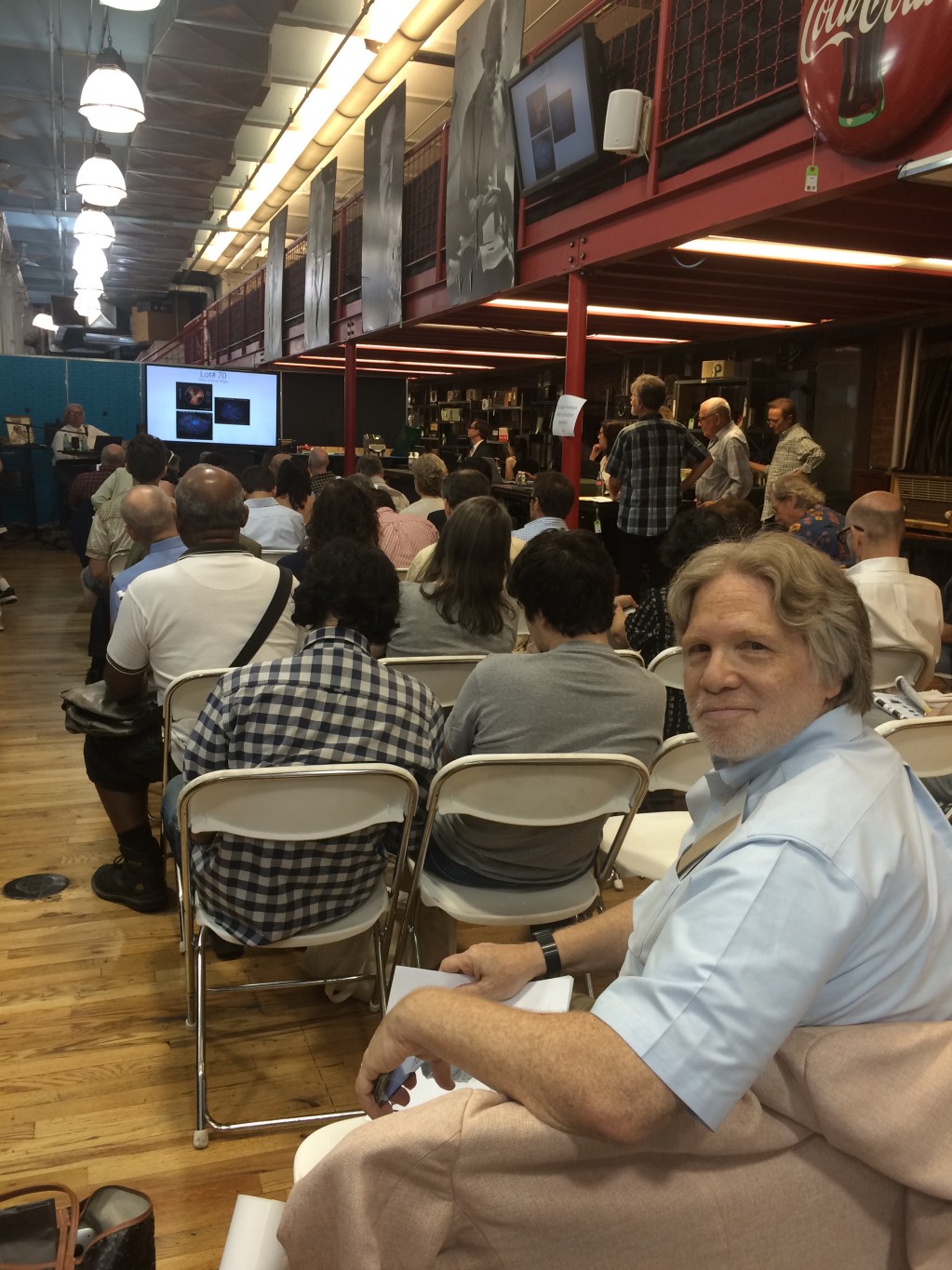
Seated in the back of the room was Tekserve board member David Rose, a serial entrepreneur, early-stage tech investor, and longtime New York tech booster, who had come to get a memento of Tekserve. He walked away with a “plunger detonator” ($850) but lost out on what seemed to be almost everyone’s white whale: “Someone outbid me for the Coke machine.” The vending machine in question, a vintage 5-cent Coca-Cola dispenser retrofitted to offer an 8-ounce drinks, went for $1900. Although most of the time the drinks in the store were free. “We often supplied the nickel,” said Jan Albert, the wife of the co-founder Demenus.
The face of the auction was the Salvador Dali-esque Lot 50 “Melted Macintosh Computer” (thanks to an internal fire). During the auction, Roland said his company thought the melted Mac was “funky enough” to make the cover of the auction catalogue. Remarked Tekserve co-founder Demenus, “I thought it would go for $100.” The man clearly did not know his audience.
It sold for $1200.
Theresa Rivera, who still works at Tekserve’s business-to-business arm T2 Computing as VP of sales, had her laptop open and focused on winning items at the auction. She wasn’t interested in buying any old computers; she already collects them. Rivera estimated that she has about thirty in total, and though she doesn’t have any room to show them off in her Long Beach home, she plans to buy a house upstate where she will. Rivera was bidding on typewriters and radios, the latter also a prize choice for David Yee, a former employee who now works for Vox as Director of Platform Engineering. “I want to have a reminder of working here,” Yee said. Yee worked for Tekserve twice, first as a desktop network technician, when he arrived in New York in 1996, and then after the tech bubble burst they “were kind enough” to hire him back, as the network administrator, while continuing to repair computers, according to his LinkedIn. Yee, who was an early hire, wrote in an email:
we were twelve people in a tiny loft down the street from where the business ended. David and Dick hired me despite my having the merest inkling of how to fix most Macs…All of us knew that we performed a valuable service to a certain segment of New Yorkers — people who used their Macs to publish Buddhist magazines, design children’s books, make music, run museums — and that we did it fairly. For those people, at that time (Apple was about to wander into one of the most dangerous periods of their corporate history, in which they nearly went out of business), we were the only game in town. It felt to me that we were a band of pirates, and as with most pirates, we shared a common bond that fostered both love and irritation. Some of the pirates went on to form life partnerships, others stormed out, but every single time I see a former coworker on the street, I give them a hug.
The auction lasted nine hours and by 3 p.m. the crowd had thinned out, but the diehards, and employees, remained. By closing time, total sales — including the buyer’s premium — hit around an estimated $190,000 — including the $47,000 hammer price for the “Mac Museum” alone. (Albert said the collection had been purchased by MacPaw, a Ukrainian start-up with an office in Santa Clara, California.) “Dick was down in the dumps and thought we wouldn’t get more than $20,000 for the whole collection,” said Albert. “He wasn’t a believer but I was.”
Many of the items scored a huge premium. Roland’s son Will, who helped with the auction, noted that director-style chairs with “Apple” and the company logo on the back can be had for $50 from other places, but went for $800 in the auction simply because these were from Tekserve. “And I don’t think [the buyers were] wrong.”
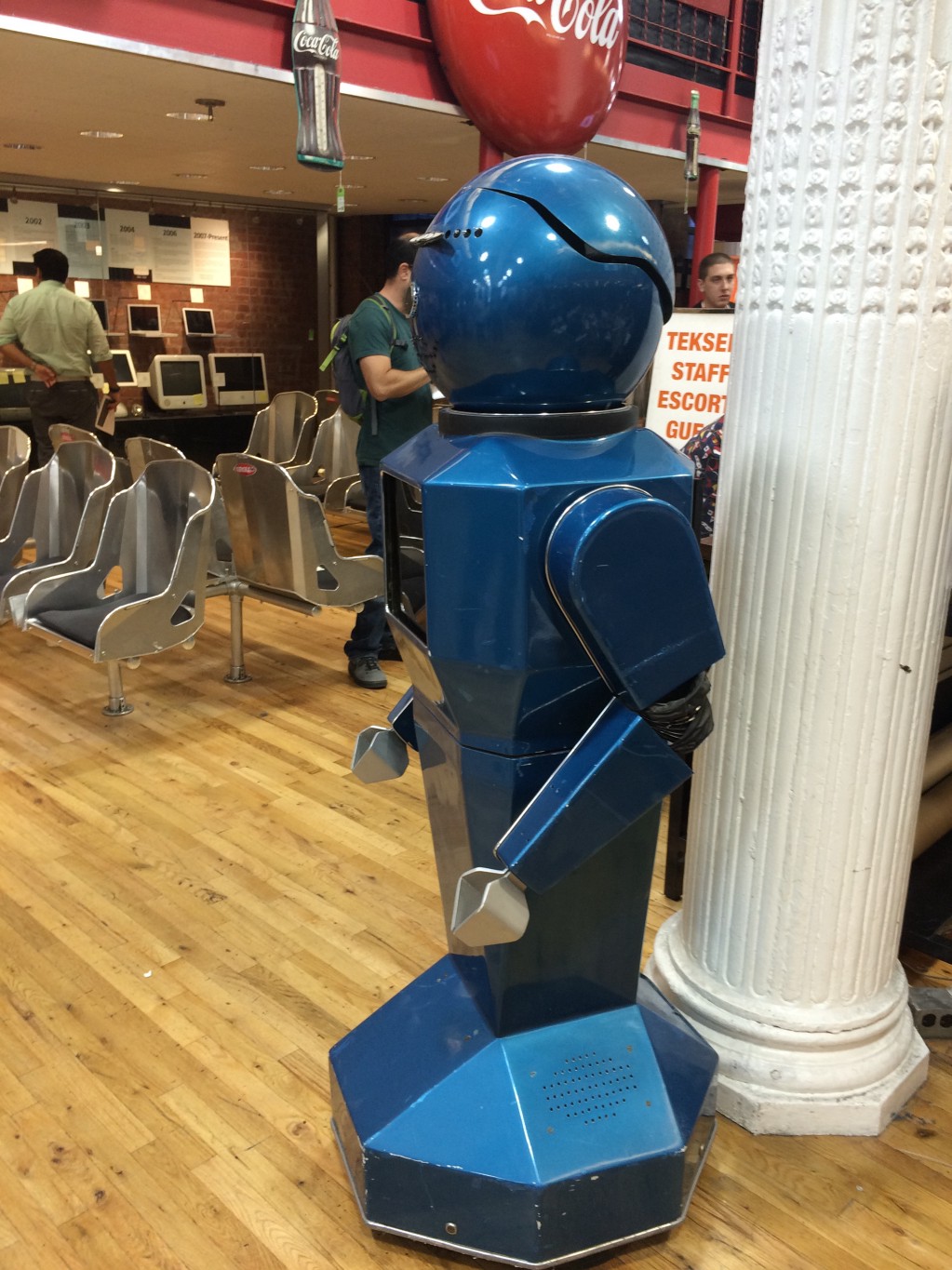
David Cohen, father of the young man who snagged the red motorcycle, said, “I’ve grown used to having Tekserve in the neighborhood. It’s going to be weird.” For those who worked at Tekserve, the auction may have seemed more of a wake than a celebration — but they, too, were glad to see a crowd that appreciated the objects they had grown to love themselves. Demenus remarked that selling the items to people who shared his enjoyment of them was far better than putting it in storage: “this way, people will enjoy the collection forever.” He did win one item back for his own enjoyment: the blue robot. “I’m fond of it,” said his wife, who bought it back at the auction. “It’s going to live in our country house in the Catskills.”
Bill Roland, who was doing running commentary while leading the auction, told the crowd, “I was told that if Steve Jobs were still here, he’d never let this place go.” The room collectively groaned. “Rest assured, you’ll never see another one.”
Caroline Waxler is a writer and a editorial director for live events. Follow her on Twitter @cwaxler
